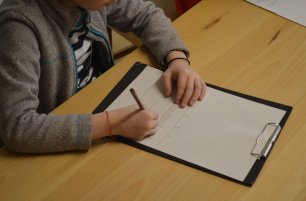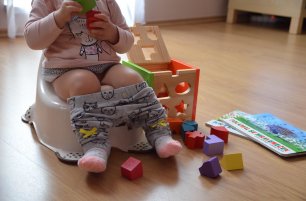Mones
Sorry, this article is only in Czech.

It can be an exciting time when your child begins to read and write their first words. They are at the dawn of an exhilarating literacy journey that will open their eyes to a world of books, knowledge, and wonder!
Read more
Have you ever noticed that your child enjoys singing the same song over and over again, or wants you to repeat the same story for what feels like a million times? Dr. Montessori highlighted the importance of sensitive periods in children, which are known as windows of opportunities for children to develop skills, including movement, language and most definitely, order. A child’s need for external order is present as early as childbirth and peaks in their second year, before fading at about the age of 5. This period of development helps a child to develop a connection between themselves and the world, process information and overcome challenges.
Read more
"My three words to describe IMSP are independence, fun, and curiosity!"
Read more
This week, our host Mariana Bečková chats with IMSP alumna Karolína Muchová. Born and raised in Prague, Karolína always knew she wanted to pursue her university education abroad. Press play to learn how IMSP prepared her for a rigorous high school experience and eventually, her choice to enroll at the University of Chicago in the United States. Between authentic one-on-one support and a personalized curriculum designed by IMSP teachers, Karolína shares how her experience with Montessori set her up for success as she spread her wings around the globe.
Read more
How to handle toilet training? It’s often considered one of the first big parenting “tasks,” and can bring a lot of anxiety and frustration. But it doesn’t have to! In Montessori Infant and Toddler classrooms, we use a time-tested and practical approach to toilet training that is (dare I say it) easy on both parents and children.
Read more